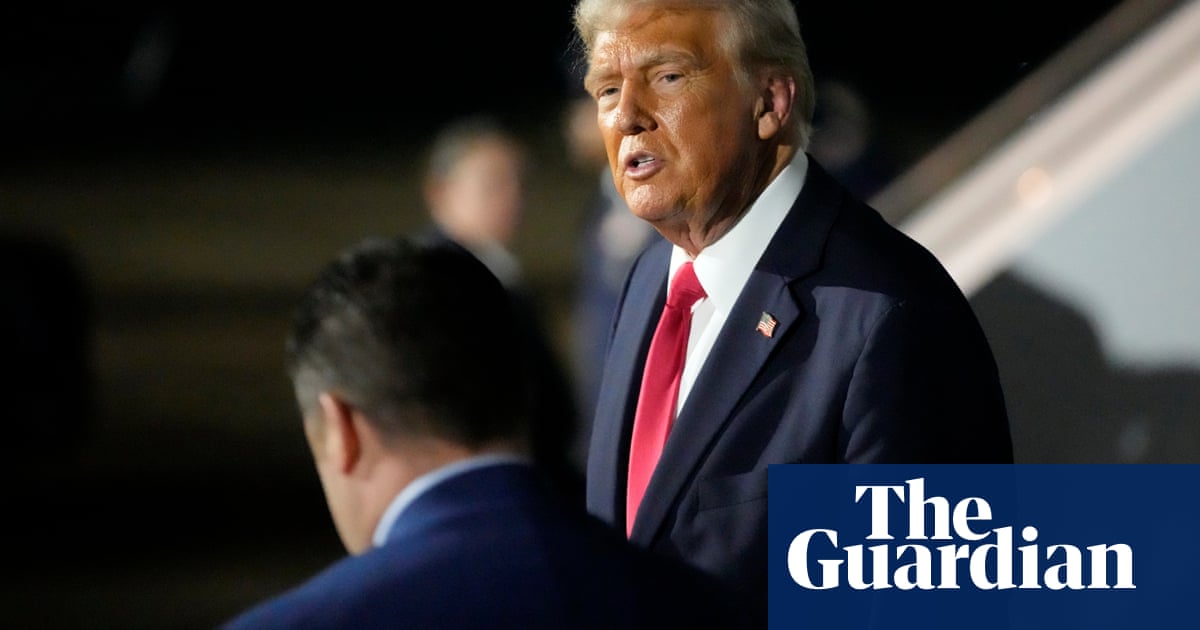Donald Trump’s proposed “land grabs” mean the US is no longer perceived as “an anchor of stability, but rather a risk to be hedged against”, the organisers of the Munich Security Conference have said in their pre-summit report.
The report, which takes as its theme the shift from a US-led, unipolar post-cold war era towards a multipolar world in which no single ideological outlook dominates, will form the backdrop to this year’s conference.
Since his inauguration, the US president has mooted acquiring land for the US in Greenland and Panama, and suggested Canada could be a 51st US state. The signals from Washington increasingly indicate that the US no longer wants to be the guardian of the liberal international order, but it is far from clear which other countries may be willing and able to provide much-needed global public goods.
The report’s authors suggest a US withdrawal from a global leadership role has implications beyond issues of war and peace: “Without global leadership of the kind provided by the United States for the past several decades, it is hard to imagine the international community providing global public goods like freedom of navigation or tackling even some of the many grave threats confronting humanity.”
The authors also say the US president’s effort to assert a new form of US primary will be undermined by the “multipolarisation” trend. Their report includes survey data showing the trend is more likely to be welcomed as a force for good in countries such as Brazil, India, South Africa and China.
The conference, which opens on Friday, is seen as the most important forum for discussions between international security policy decision-makers. It will include the first meetings between a Trump delegation, led by the US vice-president, JD Vance, and European political and military figures since Trump’s inauguration.
Vance will be accompanied by the US defence secretary, Peter Hegseth, the secretary of state, Marco Rubio, and the US special envoy for Ukraine, Keith Kellogg. They are likely to be asked about a future US leadership role and their proposed terms for a ceasefire between Ukraine and Russia. Kellogg has denied reports he is planning to unveil a completed peace plan to the conference.
European leaders will press Vance to do more to weaken Vladimir Putin before any negotiations, and will ask whether the US – either via Nato or independently – is prepared to provide badly needed backup to a possible European-led stabilisation force inside Ukraine after a ceasefire.
The conference coincides with Trump’s threat to place unspecified “reciprocal tariffs” on the EU.
The MSC report predicts a world in which “a greater number of states are vying for influence”, meaning “the future order may be much messier”.
It says: “We may be living in a world where multiple orders coexist or compete and where little is left of near-universal rules, principles, and patterns of cooperation. In such a ‘multi-order’ or ‘multiplex’ world, the liberal order may not necessarily disappear. But its reach will increasingly be restricted to the west, or what is left of it.”
The authors also warn that Russia is not just interested in neutralising Ukraine as a military threat, but is working towards a Russian-led Eurasian order, as outlined in the new security treaties Moscow proposed to the US and Nato in late 2021.
They implicitly urge Trump to realise the possibility and wider ramifications of a defeat for Putin. “Faced with economic uncertainty, imperial overstretch, and a highly attritional war, it is uncertain if Russia can continue its imperialist endeavors,” they write. “This will in part depend on the international community, which has to decide whether it will give Russia space to do so or instead pressure it into respecting the rules based international order.”
US efforts to hamstring China are likely to intensify – but Beijing could also benefit from US withdrawal from international commitments or Washington’s alienation of longstanding partners. The survey, for instance, shows that in every G7 country the risk represented by the US has increased more than the perceived risk posed by Russia. The environment, including extreme weather events, is perceived as a greater risk in every country surveyed except the UK and Germany.
The authors say peaceful coexistence between the new different orders “is rather unlikely, given that it is far from clear whether the major ordering poles can agree on at least some rules, principles, and structures of cooperation to manage inter-order relations”.
Rubio seemed to embrace the prospect of a more multipolar world while giving evidence to the Senate foreign relations committee last month. “It’s not normal for the world to simply have a unipolar power,” he said. “That was an anomaly. It was a product of the end of the cold war, but eventually you were going to reach back to a point where you had a multipolar world, multi-great powers in different parts of the planet. We face that now with China and to some extent Russia, and then you have rogue states like Iran and North Korea you have to deal with.”
Article by:Source: Patrick Wintour Diplomatic editor











:max_bytes(150000):strip_icc():focal(718x391:720x393)/louise-lasalle-tout-2825-c7e93a6a127e4a949029f49418004115.jpg?w=300&resize=300,180)
:max_bytes(150000):strip_icc():focal(718x391:720x393)/louise-lasalle-tout-2825-c7e93a6a127e4a949029f49418004115.jpg?w=80&resize=80,80)



